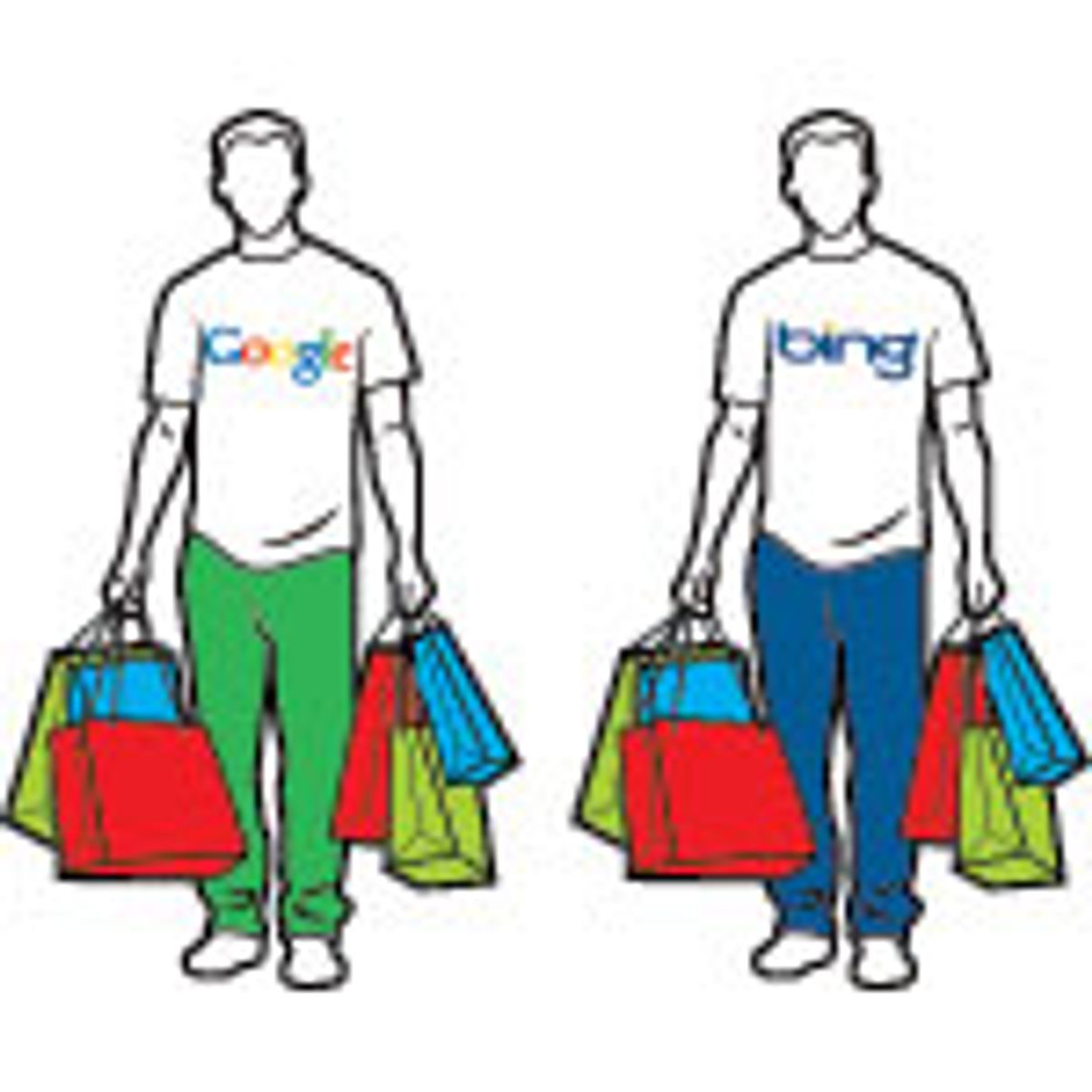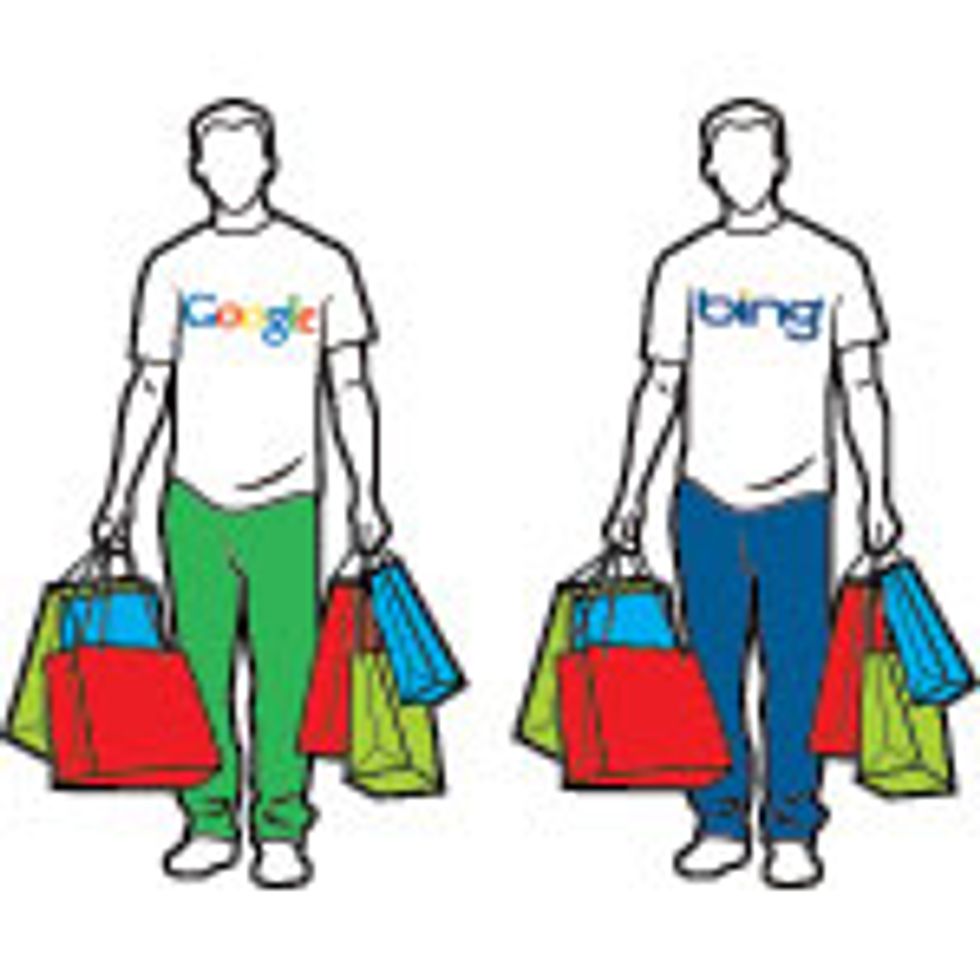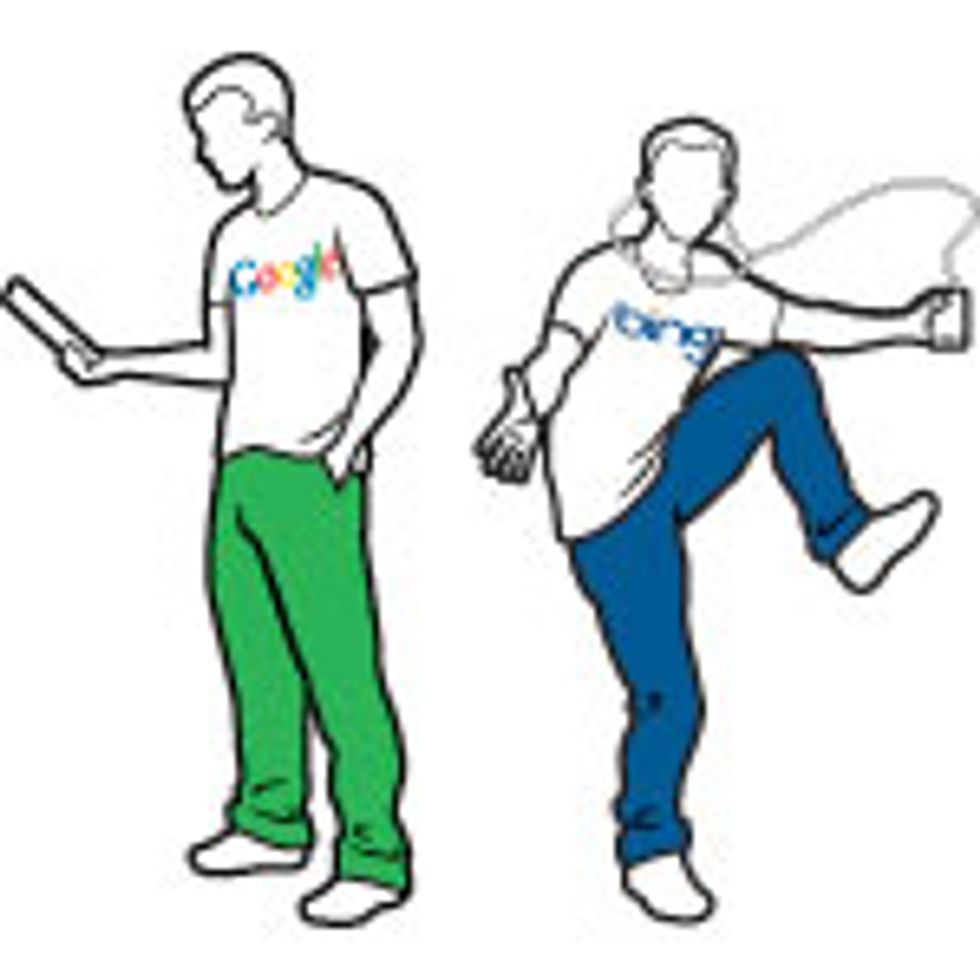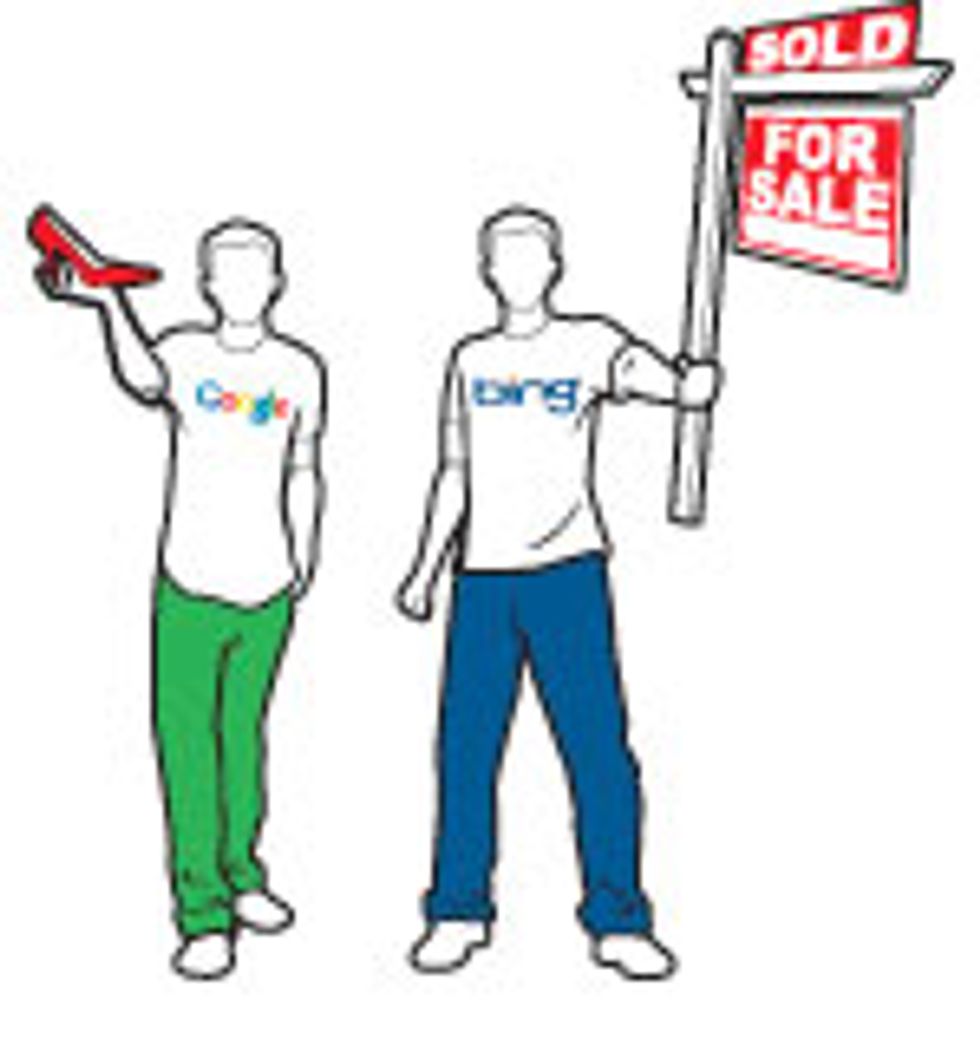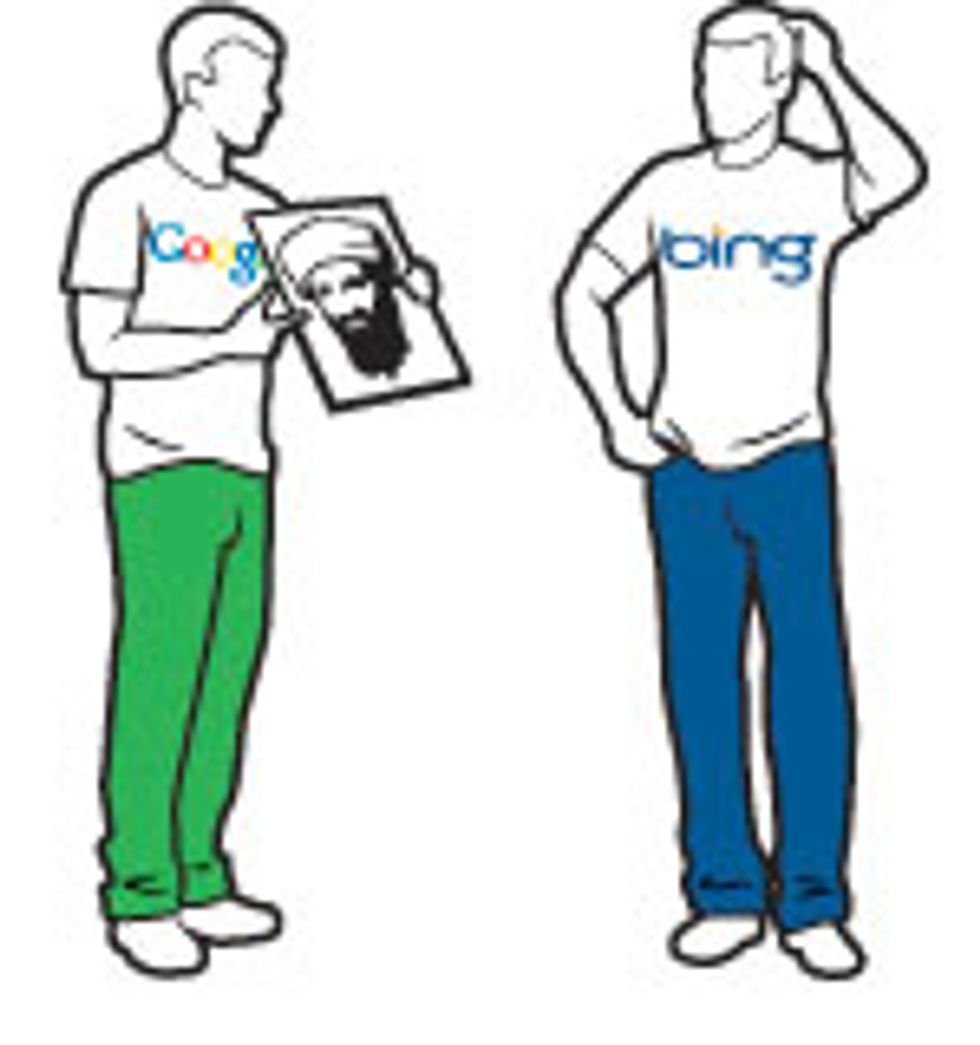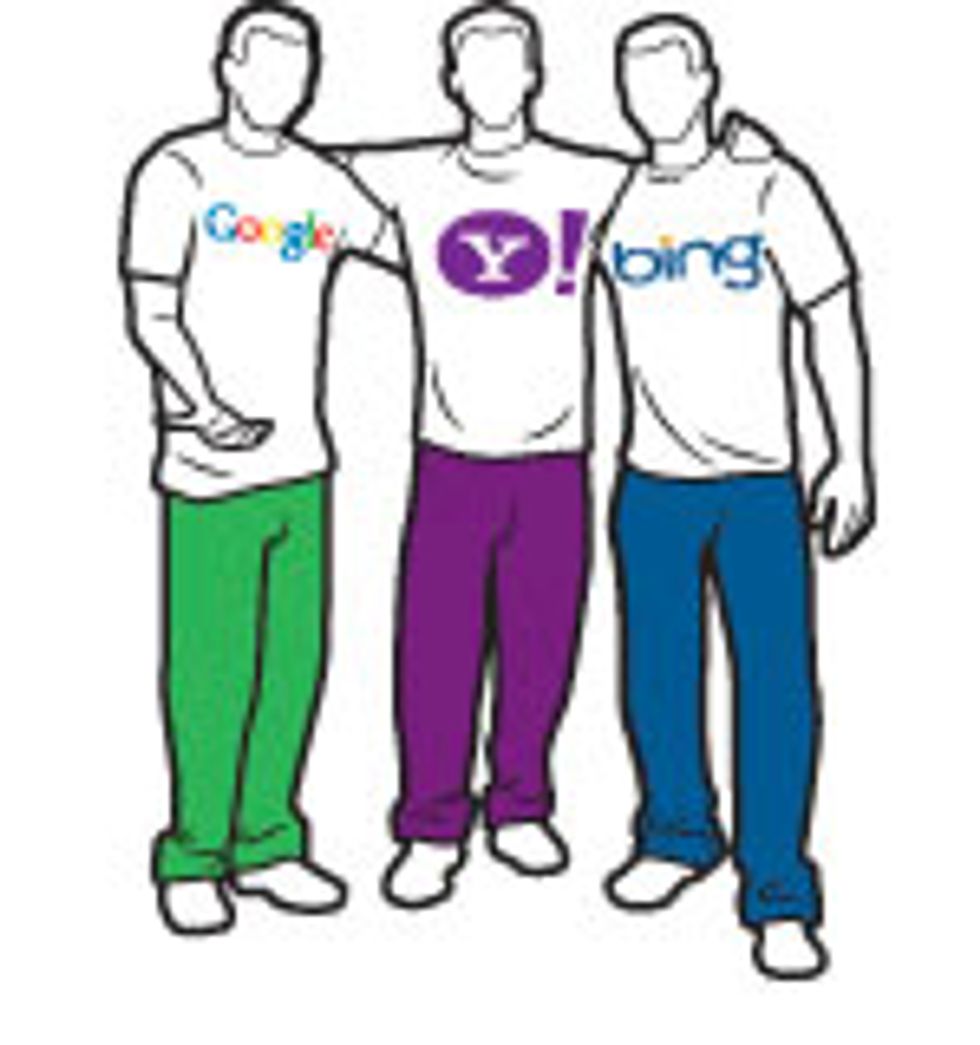
A.Brands and More Brands: Out of 26 letters, 21 (81 percent) of Google's suggestions are names of organizations and products. Bing's suggestions for brand names totaled even higher—about 92 percent (24 letters).
| 
I.I Before A: While Apple is never suggested for A, each search engine features an Apple product for I.
| 
Z.Location, Location, Location: Checking out real estate values on
Zillow is a San Francisco Bay Area obsession; when this test was run on the East Coast in July, shoe site Zappos.com edged Zillow out in Google search results.
|
| | | GOOGLE | BING |
|---|
A
| Amazon | AOL | | B | Bank of America | Bank of America | | C | Craigslist | Craiglist | | D | DMV | dictionary | | E | ESPN | e (the numerical
constant) | | F | Facebook | Facebook | | G | Google | Google | | H | Hulu | Hotmail | | I | iPad | iTunes | | J | JetBlue | JC Penney | | K | Kaiser | Kohl's | | L | Lowe's | Lowe's | | M | Mapquest | mySpace | | N | Netflix | Netflix | | O | Osama bin Laden | Orkut | | P | Pandora | Pandora | | Q | quotes | QVC | | R | Rebecca Black | RuneScape | | S | Southwest | Southwest Airlines | | T | Target | Target | | U | United | USPS | | V | Virgin America | Verizon Wireless | | W | weather | www.facebook.
com | | X | Xbox | Xbox | | Y | Yahoo | Yahoo | | Z | Zillow | Zillow |
| 
O.No One Here: Search engines don't seem to like people very much. Google's list shows only two, known mostly for their notoriety. Recently Osama bin Laden and musical flash in the pan
Rebecca Black shared this rare honor (and she was gone by July). Bing's list is person-free.
| 
Y.Honesty Is (Mostly) the Best Policy: Bing, not surprisingly, selects Microsoft's Hotmail for H and Google picks Google for G. But Bing's O is Orkut—a Google product. Google returns the compliment with Xbox for X. Things get even more interesting at the letter Y—Google chooses Yahoo instead of its own YouTube. Do people really search for Yahoo on Google?
|
|
|
Start typing in a browser's search box and the search engine races to complete your query. It's a great feature that can save you a lot of time.
The guessing begins the moment you type the first letter, with results that can be surprisingly accurate or amusingly off base. Search engine providers don't reveal their algorithms, but the theory is that they base their guesses on what other people in the same geographic area have searched for when they type the same initial letter.
But even within regions, what most people are searching for depends on what search engine they use. The two leaders, Google and Microsoft's Bing, which jointly cover most of the search market, differ. But together they offer a snapshot of the world's 536.6 million English-language-using Internet searchers. Here are the top search guesses from one-letter tests I did in the San Francisco Bay Area in mid-May.
This article originally appeared in print as "Search Engine ABCs."
About the Author
Swapnajit Mitra works on input/output chip protocols as senior manager of hardware engineering at PLX Technology, in Sunnyvale, Calif. He reports the results of tests he ran on how the most popular search engines try to anticipate what information you're seeking, even as you type in your query. He is amazed that while one search engine predicts you want to find a flash-in-the-pan singer, another is sure you're searching for a multiplayer fantasy game.
